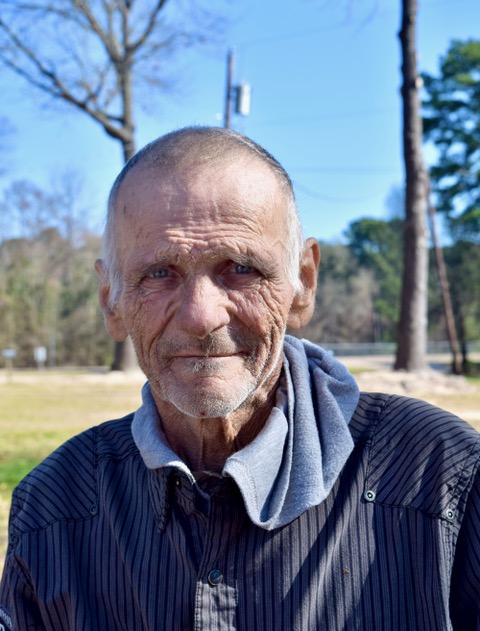
At 3:08 p.m. on Saturday, Jan. 16, 2021, a Tyler police officer was dispatched to the Walmart on Hwy 64 East regarding a shoplifting incident. Store authorities were holding an elderly man who initially identified himself as Robert Polodna Robinson. According to the arrest affidavit, dispatch advised the officer that the name, Robert Polodna Robinson, was not found in any agency databases. The officer then asked the man to write his name on a piece of paper. He wrote “Robert Polodna Robinson, 10/18/51”.
Polodna was informed that he was being detained for shoplifting and that neither his name, nor his alleged social security number, were found in department databases. He received a citation, referencing the name “Robert Polodna Robinson” and a date of birth as 10/12/70, for misdemeanor theft under $100. There is no public document explaining this alternate date of birth given to Polodna on the citation.
According to the affidavit, Polodna later told the officer his correct name, Robert E. Polodna, and explained that he gave the “false name, because he didn’t want to go to jail.”
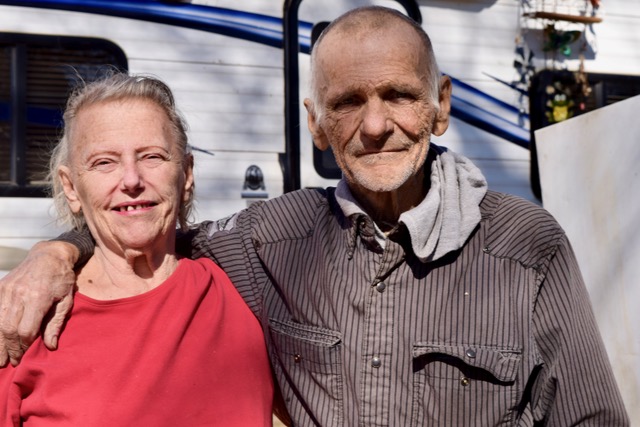
Mr. Polodna could not remember his wife’s phone number, nor his home address. “Transient” appears on the citation. He had no wallet or driver’s license on his person.
Although the misdemeanor theft was a “cite and release” offense, Polodna was taken into custody and booked into Smith County Jail on an additional charge of “Failure to Identify Giving False/Fictitious.”
The sworn affidavit identified the accused using his correct name. The magistrate determined probable cause for the arrest, and Polodna was detained with his bail set at $500 for the “Failure to Identify” charge. He was given a personal recognizance bond for the misdemeanor theft charge.
According to Joanne Polodna, Polodna’s wife of 33 years, she became worried about her husband, called 911 and was transferred to the sheriff’s office. She was eventually told that her husband was in the jail, but she could not talk to him or see him. “I was just so worried about him. I was in a world of my own,” she said.
Joanne Polodna’s worry for her missing husband was compounded by his medical conditions. He recently underwent radiation treatments and is currently receiving chemotherapy. He also takes medications for chronic obstructive pulmonary disease (COPD) and restless leg syndrome. She said, “He was getting so bad, the pain and all, that they put him on hydrocodone and a fentanyl patch. He didn’t have any of that while he was in jail.”
Joanne Polodna spoke to people at the jail several times during the week, but “I never got to see him or talk to him. They didn’t seem to care about his need for his medications. It was really scary and disappointing the way they were treating him.”
Joanne Polodna said her husband should not have been put in jail. “He has no record. He’s never done anything like this. It’s like he has these episodes where he’s gone away, you might say. He didn’t know what he was doing. Before he started taking the radiation and the chemo and all the other drugs that he has to take for his illness, he never did anything like this.”
Regarding his alleged offenses and giving a false name, Polodna said, “I don’t remember any of that. I don’t know why I was put in jail.”
Polodna said his jail experience was traumatic. “It was a nightmare! They had me in that steel tank with concrete floors. I didn’t have a blanket for two days. You can’t go out for anything. It was terrible. I remember being in jail, and I still think about it a lot. Just terrible.”
Joanne Polodna had informed the jail of her husband’s medical condition, and the jail staff were aware of Polodna’s weakened state. “They had to take me in a wheelchair everywhere I went inside. The pain got so bad they took me to the hospital,” he said.
On Friday evening, Jan. 22nd, six days after his arrest, Polodna was taken to the emergency room.
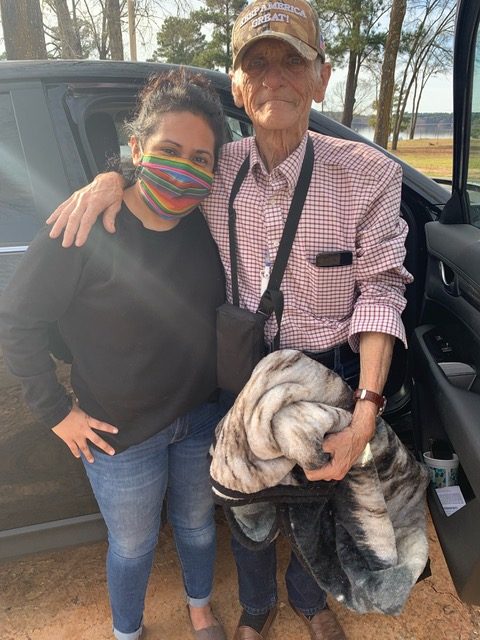
It was upon his return to the jail after the trip to the ER that a concerned citizen contacted Dalila Reynoso, an advocate with The Texas Jail Project. Reynoso secured and posted the $500 cash bail. Late in the evening on Friday the 22nd, Reynoso picked Mr. Polodna up at the Smith Co. Jail and drove him home.

The officer in charge at the time warned her that Polodna was weak and would be slow making his way out. Reynosa said, “I was shocked when he came out in a wheelchair. The officer had to lift and help him into the car.”
So many unanswered questions
In light of my story, “Not free and not easy: A Smith County Jail explainer” where I take a deep dive into how arrest and bail works, this incident raises several questions.
Polodna was taken into custody for allegedly committing two separate offenses. He was allowed a personal recognizance bond for the class C misdemeanor, shoplifting, theft under $100. On the class B misdemeanor, failure to identify/giving false/fictitious information, bail was set at $500, and he was detained.
Considering Polodna had no criminal record and his age alone, why was he not allowed a PR bond for the class B misdemeanor, which in many jurisdictions is an offense eligible for cite and release?
Did those involved with Polodna’s arrest and booking — a Tyler police officer, Smith County Jail personnel and a Justice of the Peace — observe his behavior and physical appearance and question the possibility of medical or cognitive impairment?
When jail personnel learned Polodna’s medical conditions and medications on Sunday evening (24 hours after his arrest, according to Joanne Polodna’s recollection), why was the $500 bail not reduced to a PR bond and Polodna released into his wife’s custody?
Why was a frail 69-year-old man forced to wait two days before receiving a blanket to protect against the cold steel and concrete holding tank?
Why would any detainee known to need certain medications not be given those medications while in custody?
Why did jail personnel who had daily contact with Polodna, transporting him in a wheelchair and observant of his condition and pain, not report any concerns to officers in a position to advocate for his release? In a recent conversation with me, Sheriff Smith said, “We try to get as many with medical conditions out as we can.”
Why did the Pretrial Release Office not catch Polodna’s case and proceed to secure his release?
In response to this question posed by Reynoso, Gary Pinkerton, director of the Pretrial Release Office, explained that Polodna was booked on Saturday evening and the following Monday, Jan. 18th, was a holiday.
Polodna had already been moved into the jail’s general population when the pretrial release office made the Tuesday morning survey of those “in the tank” who had been recently booked. Therefore, he was missed. Mr. Pinkerton apologized to Reynoso for this oversight.
In light of this error the Pretrial Release Office should consider revising its screening procedures, particularly with regard to weekend or holiday bookings.
The rest of the story, to date
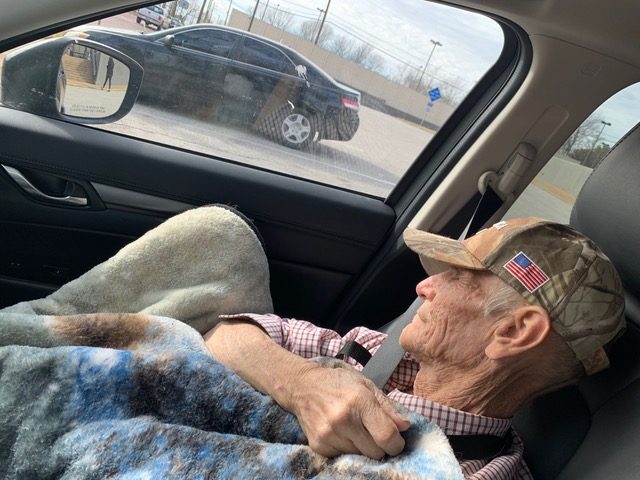
On Tuesday, Feb. 2nd, Reynoso took Polodna (with chemotherapy bag attached) to the Tyler Municipal Court to address the citation for the theft charge. He stayed in the car while she went in to speak with the judge on his behalf.
There, Reynoso said the court clerk could not find a record of the citation.
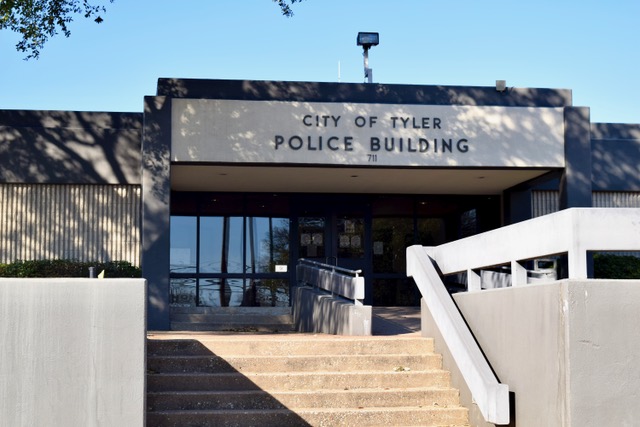
Reynoso returned to the Tyler Police Station. The clerk there discovered the citation was never corrected and was filed as it was originally written — under the name Robert Polodna Robinson, DOB 10/12/1970. Reynoso was told she would have to go back to municipal court to address the issue.
Reynoso’s experience with Tyler Municipal Court leaves a final question: Why did the Tyler Police Department file a written citation with known inaccuracies to the court?
After her experience at the station, Reynoso decided it was more important to take Polodna home to rest. She called an attorney friend, explained the situation, and he agreed to take care of the issue. The final outcome of Polodna’s case is still to be determined.
Brenda McWilliams is retired after nearly 40 years in education and counseling. When not traveling she fills her days with community, charitable, and civic work; photography; writing and blogging at Pilgrim Seeker Heretic; reading, babysitting grandchildren, and visiting with friends. She enjoys walking at Rose Rudman or hiking at Tyler State Park. Brenda and her spouse, Lou Anne Smoot, the author of Out: A Courageous Woman’s Journey, have six children and seven grandchildren between them.
Love what you're seeing in our posts? Help power our local, nonprofit journalism platform — from in-depth reads, to freelance training, to COVID Stories videos, to intimate portraits of East Texans through storytelling.
Our readers have told us they want to better understand this place we all call home, from Tyler's north-south divide to our city's changing demographics. What systemic issues need attention? What are are greatest concerns and hopes? What matters most to Tylerites and East Texans?
Help us create more informed, more connected, more engaged Tyler. Help us continue providing no paywall, free access posts. Become a member today. Your $15/month contribution drives our work.







